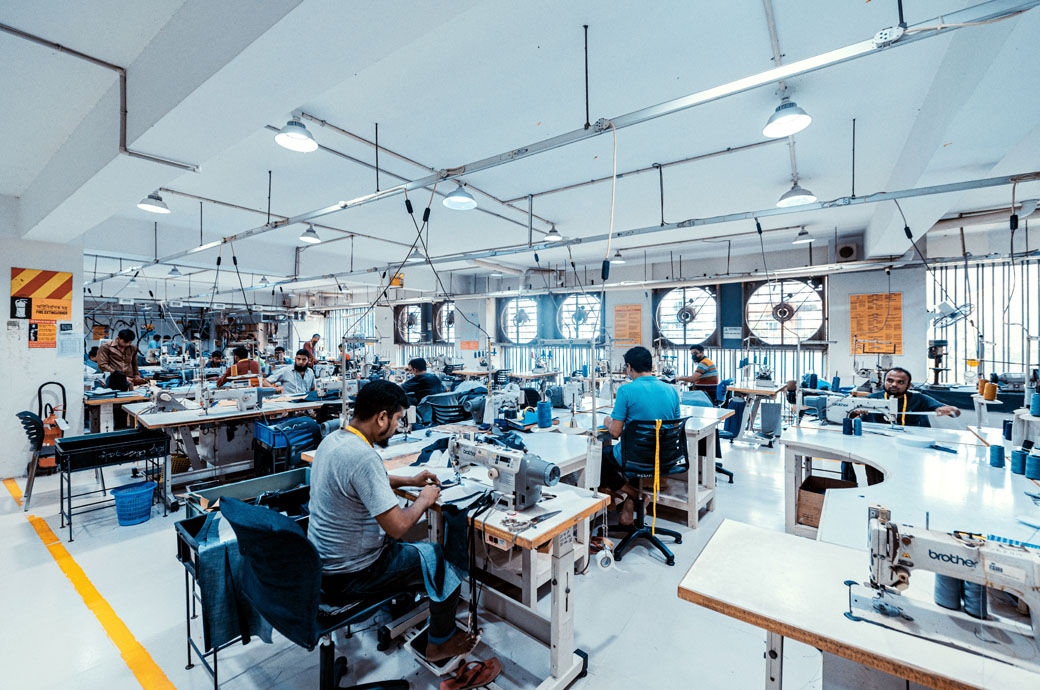The report covers the suppliers and factories where BESTSELLER’s products are made. It incorporates the company’s +20 brands, including ONLY, JACK & JONES, and VERO MODA. In the report, the company describes the work of its global teams working on the ground in sourcing countries to manage these risks across 350 suppliers and 700 factories in 18 countries, which employ just under 700,000 people.
BESTSELLER’s first Supply Chain Due Diligence Report provides transparency on its sourcing practices, addressing human rights, environmental, and product safety risks across 350 suppliers and 700 factories in 18 countries.
The report details BESTSELLER’s efforts to mitigate these risks, showcasing its commitment to responsible supply chain management across its +20 brands.
Recently, BESTSELLER reported its financial and sustainability performance, investments, risks, strategy, and governance for the company’s financial year, 1 August 2023 to 31 July 2024. In the report, the company, among many other points, outlined its approach to responsible supply chain management.
“Our greatest human rights and environmental risks lie within our supply chain. We have robust systems and qualified people working with our suppliers to address these risks, and this report provides transparency into our processes and progress. Felicity Tapsell Head of Responsible Sourcing, BESTSELLER.
Supply chain due diligence
With the Supply Chain Due Diligence Report 2023-24, BESTSELLER aims to provide stakeholders, including industry partners, NGOs, and regulatory bodies even more detailed insights into its due diligence approach and efforts in reducing the environmental and social impact of the factories where our products are made.
Our aim is to provide stakeholders with a behind the scenes look into our due diligence process. By sharing this more detailed information, external stakeholders can see what we mean when we say we are acting responsibly. It’s not enough to make claims of due diligence, we need to demonstrate how we identify and assess risks, monitor conditions and impacts at factories, and collaborate with stakeholders to drive industry improvements and mitigate the most significant risks we encounter, Emily Casswell Reporting & Transparency Specialist, BESTSELLER.
Key highlights in the report include:
Human Rights & Environmental Risks: The report provides a clear overview of the policies and frameworks the company uses to identify and manage risks throughout its supply chain. Supplier Engagement: The company details its approach to assessing suppliers, their factories, and its processes for developing corrective actions where necessary. Collaborative Efforts: BESTSELLER’s engagement with key stakeholders such as unions and industry organisations like the International Accord are explained, demonstrating the company’s proactive role in improving industry practices.
Increasing transparency
BESTSELLER’s Supply Chain Due Diligence Report is designed to align with the OECD’s Due Diligence Guidance for reporting, as well as the Ethical Trading Initiative’s Corporate Transparency Framework, amongst other industry benchmarking standards.
The launch of the Supply Chain Due Diligence Report 2023-24 represents another step the company has taken towards increasing transparency in its supply chain operations, following the commitments to publishing its tier 0, 1 and 2 public factory lists every two months, and publishing regular reports for regions of heightened human rights risks.
‘While this report is a step forward, there is more to cover and we are committed to increasing the depth and detail of the information included in future editions. We invite whoever is interested to review the report and provide feedback on how we can improve for next year.’ Emily Casswell Reporting & Transparency Specialist, BESTSELLER
Note: The content of this press release has not been edited by Fibre2Fashion staff.
Fibre2Fashion News Desk (RM)
